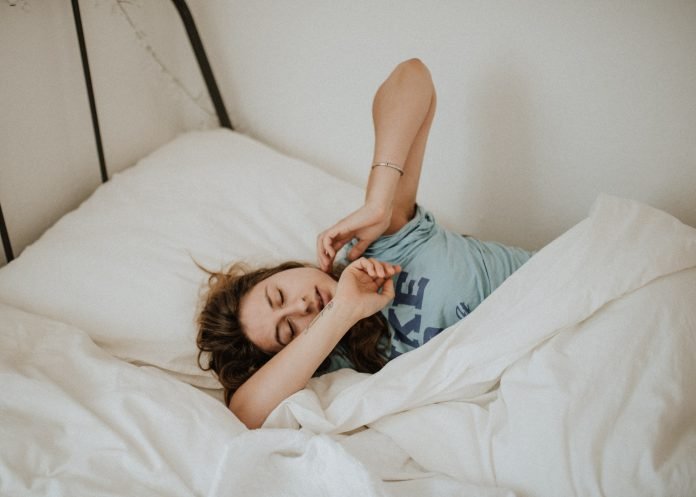
In a new study from Michigan Medicine, researchers found that increasing consumption of fruits and vegetables may help people sleep better
People who reported consuming less than five servings of fruits and vegetables per day reported a high prevalence of insomnia, with over one-third reporting difficulties with falling asleep or maintaining sleep at least three times per week for three months or longer.
In the study, the team analyzed data of more than 1,400 participants.
Eligible adults included those ages 21-30, who received any medical care at the centers and who reported eating less than five servings of fruits and vegetables per day.
Participants were assigned to one of three groups: one had an untailored web-based program to encourage higher fruits and vegetable consumption; the second had an age-targeted tailored web-based program; and the third group also included personalized e-coaching support.
The team found people who increased their fruit and vegetable consumption by at least three servings experienced modest improvements in sleep latency (time to fall asleep) and insomnia over a three-month period.
Women who increased their fruit and vegetable intake by three or more servings reported a four-minute shorter time, on average, to fall asleep at follow-up, and higher odds of improvement in insomnia.
The researchers hope the findings will be incorporated into other sleep hygiene principles, which include things like maintaining a consistent bedtime and rise time, eliminating screens prior to going to bed, sleeping in a dark, cool environment, and not consuming caffeine or alcohol before bed.
If you care about sleep health, please read studies about sleep too little or too much linked to this deadly lung disease and findings of this herb may help you sleep better.
For more information about sleep and your wellness, please see recent studies about popular sleep and anxiety drug may cause addiction and results showing that to have a good night’s sleep, avoid these 3 things in your dinner.
The study is published in Sleep Health Journal. One author of the study is Erica Jansen.
Copyright © 2021 Knowridge Science Report. All rights reserved.



